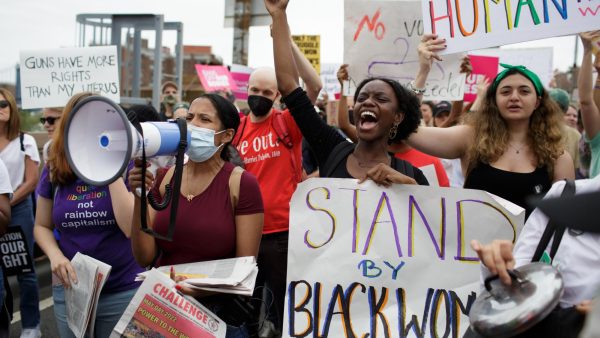Government shutdown affects many, from field trips to families
October 28, 2013
Throughout September, the House of Representatives and the Senate could not agree on legislation to continue funding the government, due to disagreements on whether to strip funding for the Affordable Care Act. The shutdown continued while Congress toiled over the debt ceiling. Due to this, the federal government shut down all nonessential operations on October 1 until funding was restored. The shutdown lasted 16 calendar days, reopening October 17.
Anything that wasn’t vital to the existence of the United States ceased operating, including national parks, Smithsonian museums, the Department of Motor Vehicles, NASA, most government websites, and military bases such as Fort Detrick in Frederick.
Although schools themselves were not directly affected, various events in school were cancelled.
One of the most visible effects was the cancellation of field trips. “We were supposed to go to the Holocaust Memorial Museum,” said Mrs. Joanne Freimuth, ninth grade English and German teacher. “My kids were upset because several of them had never been there and really wanted to go.”
The museum is among the most visited in Washington, and all the group visits had already been booked. “I cannot even book a group visit for next semester,” said Freimuth.
The shutdown has also affected the lives of families outside of school. Any nonessential employee of the federal government couldn’t go to work, as they could not be paid—this is known as being furloughed.
Sophomore Matthew Watson’s father was furloughed due to the shutdown. “He worked at NIST (the National Institute of Standards and Technology), until the shutdown,” said Watson.
The agency’s mission of “…advancing measurements, standards, and technology” were deemed nonessential to the functioning of the country.
Watson reflects on that time: “Since he can’t work, he’s been getting up early and doing house work for the most part. He’s also been driving me around and getting me places.”
Having trouble paying bills was unlikely to be an issue, as their savings account was full, but if the shutdown continued for much longer “…we may [have been] in trouble,” according to Watson.

Mrs. Lisa Smith, Government and AP Political Science teacher, has also seen her husband furloughed. “He was the chief of the quarterly services survey at the Census Bureau,” she said, “and was furloughed.”
The Smiths, like the Watsons, were in a potentially dire situation regarding their payments. “If it goes on for any longer,” said Smith during the shutdown, “we won’t be able to pay for daycare for our children.” In the news, individuals’ routines and normal lives are not emphasized as being affected like this.
When asked on her thoughts of the ordeal, she said firstly that she “…called it happening,” and that it was “frustrating that there’s a lack of compromise to end the ordeal … the effects of this will trickle down and continue on for a long time.”
Not only had the shutdown put the country into a standstill, there loomed a government debt default on October 18 if Congress could not agree to raise the debt ceiling in addition to reinstating the funding. The default meant that the government would have been unable to borrow any more money, putting a stop to foreign investments into our economy and causing inflation of the dollar.
Coupled with the government shutdown, the default would have pushed more people into debt and harm an already struggling economy, the workforce, and families dependent on federal jobs and programs, especially in an area like Linganore with a high number of federal job holders.
“I’m hopeful for a bipartisan solution soon,” Smith said during the shutdown. “It’s frustrating to see it affect so many people.”
In January, the bill signed into law reopening the government will no longer apply. Parties predict that both the funding and debt ceiling increase will cease yet again, bringing another ordeal upon the country.












